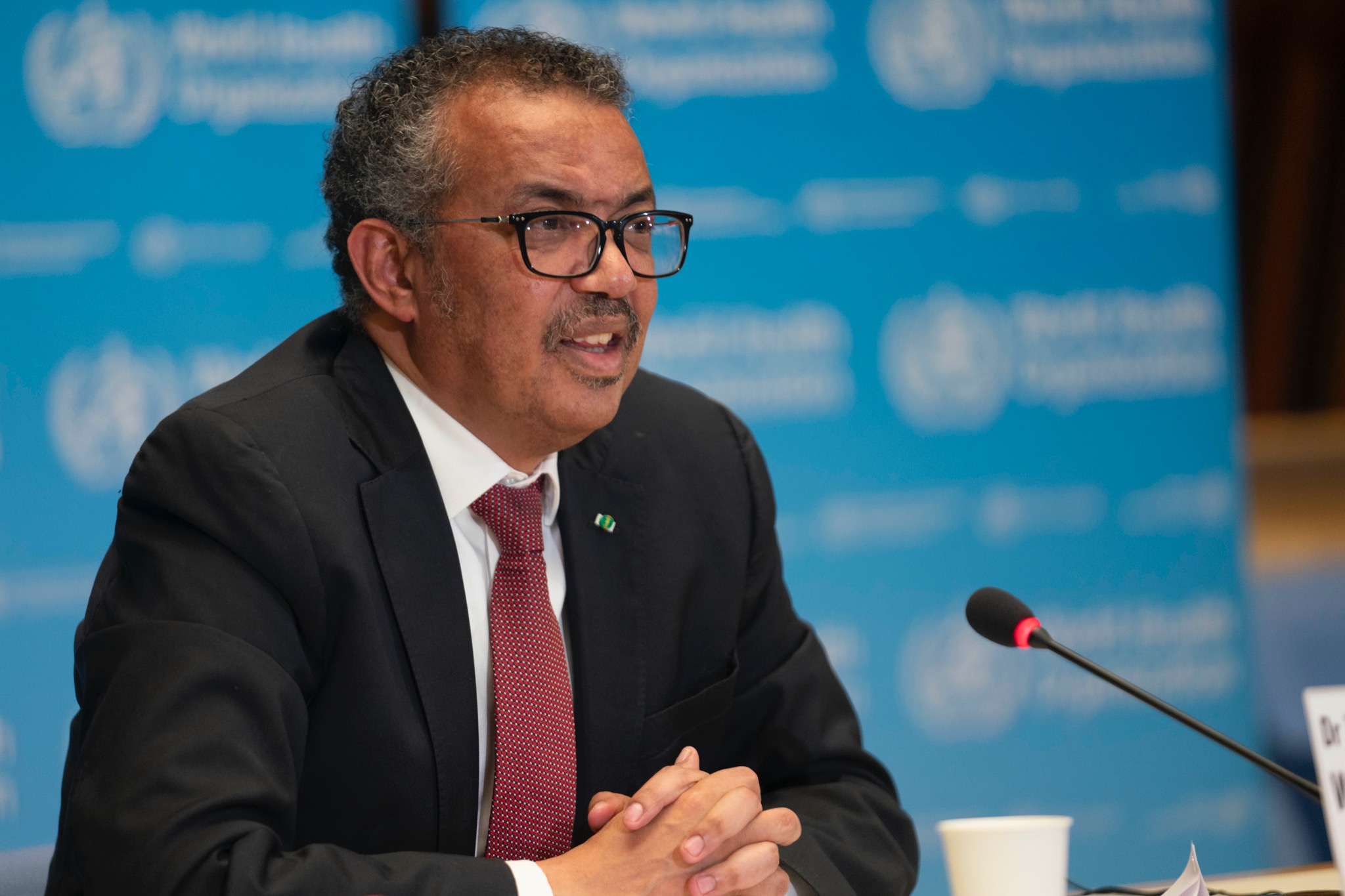By Skylar Thoma
MAIN IMAGE: WHO Director-General Tedros Adhanom Ghebreyesus speaks to the press following President Trump’s announcement that the United States’ funding for the organisation would be cut. SOURCE: Twitter @WHO
World leaders expressed concern on Wednesday after President Donald Trump moved to cut off US funding to the World Health Organisation (WHO).
The move, which Trump said would be in place while his administration assesses the WHO’s response to the global coronavirus pandemic, drew criticism from the European Union, the African Union, and the United Nations.
WHO Director-General Tedros Adhanom Ghebreyesus ‘expressed regret’ at Trump’s decision and told reporters the organisation is assessing how its operations will be affected it. The United States contributes between $400 million and $500 million USD to the WHO’s annual budget.
“The United States of America has been a longstanding and generous friend of the WHO, and we hope it will continue to be so”, Tedros said. “Our commitment to health, science, and to serving all the people of the world, without fear or favor, remains absolute.”
International leaders from various countries and organisations have criticised Trump’s decision which came at the same time as news that the global tally of coronavirus cases passed two million on Tuesday.
UN Secretary-General António Guterres urged “the international community to work together in solidarity” and said now was “not the time” for President Trump to cut funding.
China’s foreign ministry spokesperson Zhao Lijian urged President Trump to reconsider his decision, praising the WHO’s efforts to combat the virus and pledging China’s continuing support for the organization.
Leaders from the African Union and the European Union took to Twitter to condemn Trump’s decision.
Trump has previously accused the WHO of being “China-centric”, claiming “the outbreak could have been contained at its source” had the WHO not defended China’s response to the virus in January. Some scientists quoted by The Atlantic and the New York Times have suggested that the WHO was too willing to take China’s assurances on the spread of the virus at face value, and did not insist on sufficient transparency.
Guterres said a full assessment of what happened with management of the pandemic would need to be conducted in time, but not until the crisis had passed.
“It is my belief that the World Health Organization must be supported, as it is absolutely critical to the world’s efforts to win the war against COVID-19. This virus is unprecedented in our lifetime and requires an unprecedented response.”
The WHO is a subsidiary of the United Nations (UN), which works around the world to fight various epidemics, including COVID-19, Ebola, polio, influenza, HIV, tuberculosis, and others. They also support research into vaccines and help deliver key medical supplies to countries in need.
At present the WHO is coordinating global efforts to find a vaccine for the coronavirus. Tedros announced that “3 vaccines have already started clinical trials, and more than 70 others are in development”.
Trump has come under fire for his handling of the pandemic and his early suggestions that it was a hoax. Although he declared a national emergency on March 13, Trump has not invoked the Defense Production Act, which would allow him to force companies to manufacture critical medical supplies. His administration has so far refused to impose national social distancing measures, instead leaving those decisions to state and local governments.
In an interview with CNN on Sunday, the president’s chief health advisor Dr Anthony Fauci acknowledged that lives might have been saved had the federal government acted more swiftly. Fauci revised his statement on Monday following reports that Trump was considering firing him. He said he had used a “poor choice of words”.
The United States is now the centre of the global pandemic, with almost 580,000 cases and more than 22,000 deaths as of April 14. The official death toll in New York City, the centre of the country’s outbreak, rose to over 10,000 this week after officials began to include in their count people who had presented with coronavirus symptoms when they died but had not been tested, according to the New York Times.




